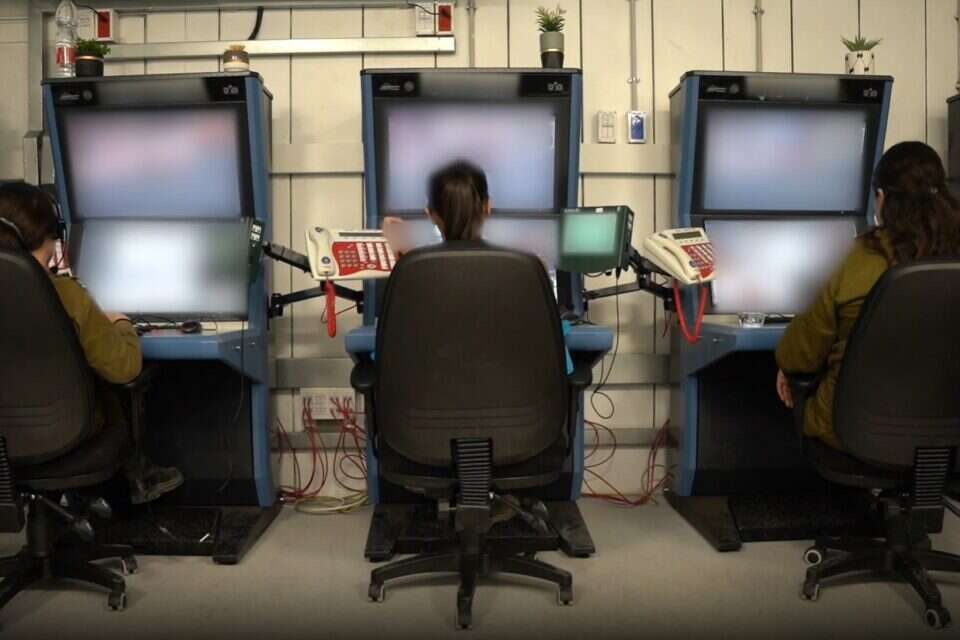"Don't count the warning of the female observers" - this sentence has been said over and over again since the October 7 disaster in which 17 female observers were murdered and seven were kidnapped (five are still abducted), out of 26 female observers who were at the base of Nahal Oz.
The families, the media and the Israeli society are asking pointed questions.
How did they "not count" clever and skilled women who were trained for their role in a long and rigorous process, who knew the decree better than anyone else, who understood the changes that were happening before their eyes and warned, but "they were not counted"?
Their commanders canceled their professional analysis and even ignored it.
I experienced the difficult feeling that female observers "do not count" about five years ago, when my daughter served as an observer at the same base in Nahal Oz.
She served in a particularly tense period from the perspective of the time.
On Fridays for many weeks there were huge demonstrations and riots by the Gazans on the border fence.
Throughout her military service, my daughter was imbued with a sense of pride for her important and complex role, and felt that she was contributing to the defense of Israel's security, the surrounding settlements and the IDF soldiers.
In one of the riots on the fence, she identified a terrorist cell and thwarted an attack.
But at the same time, there was a strong feeling that apart from the direct commanders, who were observant in the past, no one in the IDF cares about the physical and mental conditions in which these important professional women work. There was a belittling and belittling feeling. For a long time, they worked in shifts around the clock due to substandard conditions in the IDF.
"Military slavery", I called it, without enough time for rest, sleep and food as the IDF undertakes to provide. They asked for reinforcements for the round of shifts, including female reservists, but they answered in the negative on the grounds that there was no budget for this.
The female observers suffered from burning eyes, knee and back pain, and especially from mental difficulty as a result of the heavy responsibility and the great pressure.
On top of that, they were punished for "not keeping kosher" and closed their kitchen for different periods.
The kitchenette is necessary for their proper functioning, since the shifts do not allow them to join meals in the dining room at the base.
The regimental police officer and police officer treated female observers as little, spoiled and emotional "girls", and not as valued professional women.
There was a long-standing tradition at the base of Nahal Oz, according to which each batch of female observers who were released painted on the inner walls of the migonit in the women's quarters (the one where many ended their lives on the Black Sabbath).
These walls are visible only to them, and not to the other base soldiers.
In an arbitrary decision the General decided to paint these walls gray because "that's how it should be in an IDF base".
Four female observers, including their daughter, refused to evacuate the shelter during the erasure of their unit's heritage, and were sentenced to ten days in a military prison (which was converted to long imprisonment).
The female observers suffered from burning eyes, knee and back pain, and especially from mental difficulty as a result of the heavy responsibility and the great pressure.
On top of that, they were punished for "not keeping kosher" and closed their kitchen for different periods
When they shed tears over the decision to erase the "heritage wall", the SMG sent them sexist and derogatory comments such as "who are you anyway, soldiers of one year in the army", and also "observers who cry all the time". Soldiers in the various IDF units proudly paint their symbols on the foundation walls.
But these are men's units, not "crying female observers".
Since October 7, I think I should have publicly presented the disparaging and belittling attitude towards female observers.
If already years ago the prevailing attitude was that the female observers "are not counted", that they are "little girls", that there is no need to worry about their well-being, the road from there is very short to professional disdain as well.
I have no doubt today that there is a clear connection between abusive treatment in working conditions and belittling behavior and professional disdain, which is among the factors that led to the heavy disaster.
It was recently published about the refusal of female recruits to accept the position, and it is not difficult to understand why.
With such an attitude of the IDF commanders, women cannot properly fulfill their role. A fundamental and comprehensive change is needed in the attitude of all ranks of the army to female observers, and to women in general. This terrible war has already proven how important they are.
Were we wrong?
We will fix it!
If you found an error in the article, we would appreciate it if you shared it with us

